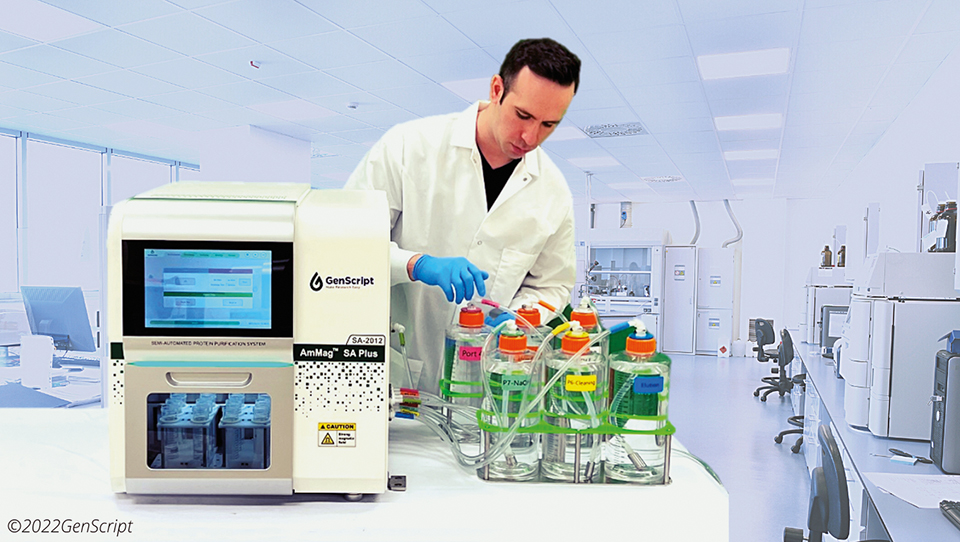
A new purification workflow
Biologicals have shown significant success for more complex diseases, whereas small molecule drugs have not been that effective. New biologicals are mostly highly purified proteins or antibodies, which require the development of technologies for the preparation of a large number of drug candidates with high purity and speed. A high throughput magnetic beads-based system is a game-changer for biologics discovery.
According to The Business Research Company market report, the biological drugs market was $258bn in 2018 and continues growing at a CAGR of 12.4%. It was made possible by the invention of the chromatography separation techniques allowing researchers to purify antibodies and proteins to high purity with various separation methods like affinity chromatography, ion exchange, hydrophobic interaction, size exclusion, and others. Although these types of separations are extensively used in the production of biological drugs, they typically require multiple steps that are time-consuming and difficult to automate.
A new purification methodology has recently started gaining popularity, minimising the need for extensive sample preparation – a method based on magnetic beads instead of packed resin columns.
Magnets can quickly pull the beads or re-suspend them as needed, increasing the purification speed and simplifying the instrument design, leading to more cost-effective high throughput instrumentation. In addition, this method can be easier to scale up or down due to adding more or fewer beads to the sample as needed.
GenScript as the game changer
GenScript, Inc. partnered with Amgen to license their internally developed magnetic beads-based technology and offer it commercially. The newly launched AmMag® SA magnetic beads-based system extends the higher throughput purification capabilities to larger volumes of up to 50 ml and can purify up to 80 mg of protein or antibody per sample. The instrument can purify 12 samples in about 40 minutes and has a throughput of more than 60 samples per day. This system has much lower requirements for sample preparation and does not require samples to be centrifuged or filtered before purification, saving researchers a great deal of time and labour.
While magnetic beads-based systems are used in genomics research and diagnostics, they have not found wide adoption in the protein and antibody purification area.
One of the roadblocks has been that protein work requires capturing a larger amount of target due to the lack of amplification techniques for proteins, that are commonly available for nucleic acid. Part of the problem is that the magnetic beads used for the separation have typically been with limited capacity and reusability, leading to the high cost of the purification. GenScript has several types of magnetic beads with high capacity and reusability and that can sustain NaOH cleaning procedures for eliminating cross-contamination.
High capacity beads
The AmMag protein A magnetic beads targeted to purify antibodies and Fc-
labelled proteins can be washed with NaOH and re-used 30-40 times. The AmMag Ni magnetic beads targeted to the purification of 6xHIS-tagged recombinant proteins can also be washed with NaOH and re-used more than 100 times without stripping and re-charging. This allows beads-based purifications for larger target amounts at a competitive cost.
Scaling up protein purification
The availability of the newly launched magnetic beads-based products can help further increase throughput and improve efficiency. These new advancements can significantly accelerate the screening of new drug candidates and help companies launch new cures faster.
This article was originally published in European Biotechnology Magazine Spring Edition 2022.


 Immunic/Nela Dorner
Immunic/Nela Dorner
